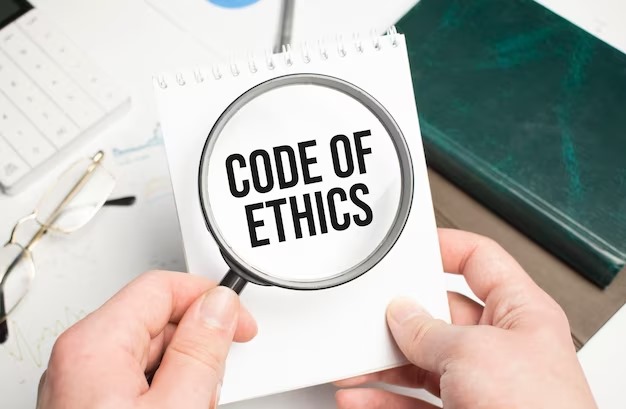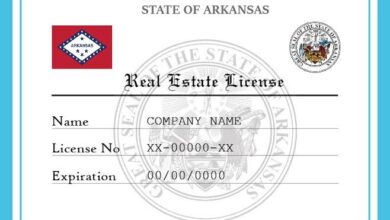Realtor Code of Ethics: Upholding Integrity in Real Estate

Are you in the market for a new home, desperately seeking an agent who won’t just sell you a property, but also peace of mind?
The “Realtor Code of Ethics” is your map through the ethical minefield of real estate, guiding you to the client-focused professionals you’ve been longing for.
Dive into a world where integrity isn’t just a buzzword but a way of life in the real estate realm.
Introduction
The real estate industry is rife with opportunities, but it also presents the potential for ethical challenges. The Realtor Code of Ethics serves as a compass for real estate professionals, guiding their conduct and ensuring that the highest standards of integrity are upheld.
In the dynamic world of real estate, integrity and ethical behavior are paramount. Realtors play a pivotal role in facilitating property transactions, and to ensure professionalism and trust, they adhere to a strict code of ethics. This article delves into the Realtor Code of Ethics, its significance, key principles, and much more.
Understanding the Realtor Code of Ethics
The Realtor Code of Ethics is a set of guidelines and principles that Realtors voluntarily pledge to follow, serving as a moral compass that goes beyond legal obligations, emphasizing the importance of honesty, fairness, and professionalism in dealings with clients, customers, and other real estate professionals, ultimately fostering trust and transparency in the industry.
History of the Realtor Code of Ethics
The roots of the Code trace back to the early 20th century when the National Association of Realtors (NAR) recognized the need for a set of ethical standards. Over the years, the Code has evolved, adapting to the changing landscape of real estate, ensuring that it remains relevant and effective in guiding Realtors’ behavior.
Importance of the Code
The Code plays a crucial role in maintaining the reputation of the real estate industry. It fosters trust among clients and customers, which is essential for successful transactions. This trust forms the foundation for long-lasting relationships and repeat business in the real estate world, as clients are more likely to return to Realtors they trust for their future real estate needs.
Key Principles of the Code
The Code of Ethics comprises 17 articles, each focusing on different aspects of ethical behavior. Some of the key principles include honesty, non-discrimination, and the obligation to put the client’s interests first. These principles are not only the foundation of a Realtor’s integrity but also serve as a testament to their unwavering commitment to acting in the best interests of those they serve, making them trusted advisors in the world of real estate.
Violations and Consequences
Realtors found in violation of the Code may face disciplinary actions from their local Realtor associations. It includes fines, suspension, or expulsion from the association. Such consequences serve as a strong deterrent, encouraging Realtors to uphold the highest ethical standards in their professional practices.
How the Code Protects Consumers
The Code not only benefits Realtors but also safeguards the interests of consumers. It ensures that clients are treated fairly and honestly, protecting them from unscrupulous practices. This commitment to ethical behavior fosters a relationship of trust, which is vital for the successful and transparent completion of real estate transactions.
Benefits of Hiring an Ethical Realtor
For consumers, working with a Realtor who adheres to the Code of Ethics provides peace of mind. They can trust that their Realtor will act in their best interests and provide ethical guidance throughout the transaction. This assurance not only fosters a sense of security but also streamlines the entire real estate process, ensuring a smoother and more transparent experience for all parties involved.
Code of Ethics vs. Legal Obligations
While the Code sets a high ethical standard, it’s essential to distinguish it from legal obligations. The Code goes beyond the law, emphasizing moral and ethical conduct, ensuring that Realtors prioritize the best interests of their clients and maintain the highest level of trust and transparency throughout real estate transactions. This commitment to ethical behavior not only fosters professionalism but also sets Realtors apart as trusted advisors in the industry.
Ethical Dilemmas in Real Estate
Real estate transactions can be rife with ethical dilemmas. From dual agency conflicts to disclosure issues, Realtors often find themselves in situations where ethical decision-making is paramount. These dilemmas may include handling competing interests or ensuring complete transparency to protect both buyers and sellers throughout the transaction process.
Realtor Associations and the Code
Realtor associations, such as the NAR, play a pivotal role in upholding the Code. They provide guidance, education, and enforcement of ethical standards for their members. These associations offer resources and support to ensure that Realtors are well-versed in the Code’s principles. Moreover, it will foster a culture of professionalism and ethical excellence within the industry.
Training and Education on Ethics
Realtors receive training on the Code of Ethics to ensure they understand and can apply its principles in their daily practices.
This training covers a wide range of ethical scenarios and equips Realtors with the knowledge and skills to navigate complex situations, ultimately fostering a culture of trust and integrity within the real estate profession.
Continuous education is encouraged to stay updated on ethical considerations, ensuring that Realtors remain well-informed and responsive to evolving ethical standards and challenges.
Conclusion
The Realtor Code of Ethics is the bedrock of ethical conduct in the real estate industry. It instills confidence in clients, ensures fair dealings, and upholds the reputation of Realtors. Choosing to work with a Realtor who follows this Code is a wise decision for both buyers and sellers.


